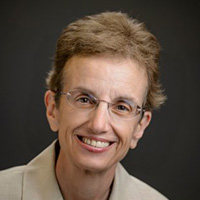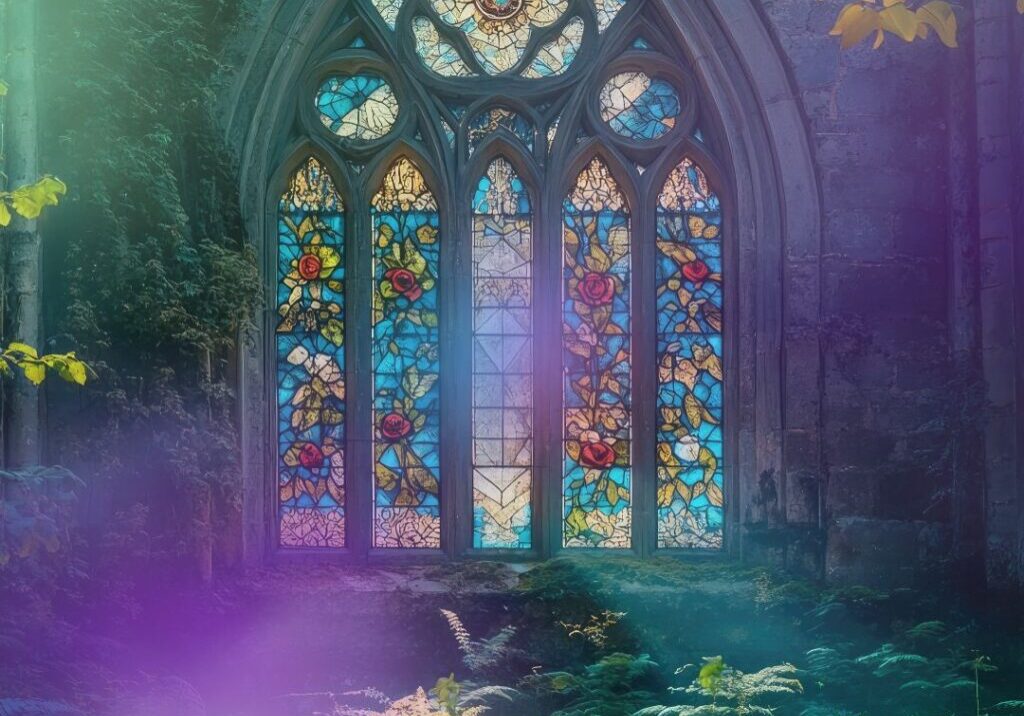Christogenesis By Any Other Name?
 The new name for our Center has caused some concern among our followers; hence, I thought it best to try to explain why this name is fitting for a world of plurality and movement. Let me begin by saying that religious language carries a lot of baggage. It is so unfortunate because religious language expresses the otherwise ineffable, but it can also conjure up memories of patriarchy and oppression. Religious language seeks to articulate that which cannot be expressed but which is felt and experienced in the sense of awe, wonder and amazement. The tragedies of our age stem from the fact that we neither make the ineffable effable nor are we comfortable with the darkness and ambiguity of the ineffable.
The new name for our Center has caused some concern among our followers; hence, I thought it best to try to explain why this name is fitting for a world of plurality and movement. Let me begin by saying that religious language carries a lot of baggage. It is so unfortunate because religious language expresses the otherwise ineffable, but it can also conjure up memories of patriarchy and oppression. Religious language seeks to articulate that which cannot be expressed but which is felt and experienced in the sense of awe, wonder and amazement. The tragedies of our age stem from the fact that we neither make the ineffable effable nor are we comfortable with the darkness and ambiguity of the ineffable.
Why “Christogenesis” instead of “Unity” or “Planetarity” or another general, non-descript name? Well, for one, I think the New Testament revelation of Jesus as the Christ holds significance for us today, and two, Christianity is fundamentally a religion of evolution. Expanding these two foundational ideas in an emerging global and complex world is the aim of the Center. I shall not burden you with the history of the title “Christ” which, of course, relates to the Jewish belief in Mashiah, the Greek translation of which is Christos, the anointed One or the One sent by God to renew the earth. The Christ is the heart of the New Testament. Jesus of Nazareth asked his disciples: “Who do people say that I am?” Peter exclaimed: “You are the Christ!” This was not a doctrinal formula but the felt experience of Jesus’ life, a Godly power of compassionate love emanating from the person of Jesus. I suppose Peter could have said, “You are the One” or “You are divine love in person,” but the expectation of the Messiah was in the air and Peter recognized the promised Messiah in a human person. Saint Paul, in his Letter to the Corinthians, claims the profession of Jesus as the Christ was scandalous to the Jews and illogical to the Greeks—and it remains illogical and scandalous to us today (cf. 1 Cor 1:23). By formulating Christ into a fifth century doctrinal formula at the Council of Chalcedon, we made Christ into an abstract idea which has led to various forms of Christian agnosticism. There are many Gnostics (salvation by knowledge alone) and Arians (Jesus is not really God but very close to God) hanging around churches, but gnostic Christianity probably shares more in common with Hinduism and Buddhism than with Jesus. The Christian message is that God has become flesh [sarx in Greek or “matter”]—not a part of God or one aspect of God but the whole infinite, eternal God Creator has become matter. The claim—God has become flesh—is so radical that it is virtually unthinkable and illogical. Christianity is the most radical of all world religions because it takes matter seriously as the home of divinity.
The shock of the incarnation stems from a narrow understanding of God as a ‘super-Being.’ God is not a Being among beings, as Lutheran theologian Paul Tillich wrote; rather, God is Being itself [Exodus 3:14: “I am who I am”]. From a philosophical perspective, God is the infinite horizon and ultimate concern of Being. Revelation is about the experience and consciousness of God as deeply present, personal and intimate, a God who cares for each living being [Jeremiah 31:3: “I have loved you with an everlasting love.”] It is with Jesus of Nazareth that a new understanding of God emerged. Jesus spoke of God as “Abba”—“daddy”—an intimate, personal experience of God. He testified that he must depart so that the Spirit of God may empower his disciples indicating, in a sense, I must get out of the way so that you may know the way (cf. Jn 16:7). In Jesus, we see that God is not a monolithic unity but deeply relational. God is a community of divine persons, in which there is a center of ineffable and self-communicative love [the “Father”], a center of expressed love [the Word/Son], and the personal breadth of love that holds together the ineffable power and expression of love [the Spirit]. The name God points to the Trinity, an ineffable, overwhelming dynamism of interpersonal love that exists to share life within and without. The Trinity is an interpersonal plurality of divinity united in a community of love. The number “three” is symbolic of God’s interpersonal nature. God creates out of love, in love and for love; every act of creation expresses the love of God, meaning every aspect of creation bears an ultimacy in love. Love is not an attribute or relation of God; it is the very beingness of God. To say that everything is created out of love is to say that God exists in and for another. Love lives in the other because to love is to go out to the other, to live for the other, to become one with the other: love transforms because love unites. Hence, to speak of the incarnation—the Word made flesh—is not to speak of a divine community vote where the Son is elected to become human. Nor is it an event where God shares ideas with us. The incarnation is the dismantling of divine idolatry; a God who empties God’s self to become God in us without forfeiting divinity (cf. Phil. 2:6-11). The ‘self’ of God is in the ‘self-emptying’ of God; God becomes “element” and draws all things through love into the fullness of being. Grace is the gift of God’s own life given out of the divine wellspring of love. Divinity empowers created reality with radical divine presence because matter has, from the beginning, been created to receive divinity into itself.
Incarnation is matter’s capacity for the infinite. God is love, love is relational, and from all eternity God willed to exist in otherness. In the incarnation, the infinite divine becomes finite without ceasing to be infinite. Incarnation is what creation is all about. Although there are many names of God, and many paths to God, there is no other God other than the God we encounter in the material world. As Gerald Manley Hopkins wrote: “The world is charged with the grandeur of God.” Each being expresses the infinite love of God in a unique way; God becomes “this” being, and “this” being is not “that” being. Everything that exists, every star, leaf, photon, bird, tree and person, has an ineffable divine depth. This leaf is loved into being from all eternity, just as this person is loved into being from all eternity. The world of science and technology is driven by God-filled matter; matter is created with infinite potential precisely because God is the ground of existence itself. The great twentieth-century Jesuit theologian Karl Rahner suggested that the idea of God opens up the space of transcendence and undergirds the capacity to give rise to new levels of being. Because matter has infinite potential, the whole material world is a constant drive to realize its Godly nature. Yet, God is not mere matter [this is pantheism, which lacks openness to the future]. Rather, God is in matter and matter is in God, but God is not matter and matter is not God. This is what the medievalists called a “coincidence of opposites,” or mutually affirming opposites, insofar as the union of opposites complete each other. Teilhard de Chardin said that God and world form a complementary pair.
The self-emptying of God who is love and the response to this love mark the life of Jesus as the Christ. He accepted the infinite love of God in his life and responded to love with love, surrendering himself out of love for the sake of God’s reign, the fulfillment of a new heaven and earth. The resurrection of Jesus Christ symbolizes the capacity of each material being to be transformed into the entangled love of God at the heart of the cosmos. As Bonaventure wrote in his Sunday Sermon: “Christ shares existence with each and everything, with rocks, and plants, and animals, and humans and angels.” The symbol of the risen Christ means that nothing is left out of the ineffable love of God, unless one chooses to reject this love. Even then, however, God continues to love, for God respects human freedom without ceasing to love the person.
The symbol of the risen Christ reflects the movement of Christogenesis, the power of God within creation to be something more in and through creation. As we are divinized in God, God is materialized in us, so that the risen Christ symbolizes the new creation, a new cosmotheandric reality, by which God, cosmos and anthropos form a new being, a new type of personhood, ever expanding and deepening in divine love. Christogenesis is apropos of a scientific and technological age because it is the movement toward novel and creative personhood, that is, greater unity and being-in-love. Beatrice Bruteau captured the movement of Christogenesis in her lyrical description of the Living Christ:
To be “in Christ” is to abandon thinking of oneself only in terms of categories and abstractions by which one may be externally related to others and to coincide with oneself as a transcendent center of energy that lives in God and in one’s fellows—because that is where the Christ lives, in God and in us.
To be “in Christ” is to experience oneself as an initiative of free energy radiating out to give life abundantly to all, for that is the function of the Christ. To be “in Christ” is to be an indispensable member of a living body, which is the Body of Christ.
To be “in Christ” is to be identified with the Living One who is not to be sought among the dead, for the Living One is the One who is Coming to Be.
If I am asked then, “Who do you say I am?” my answer is: “You are the new and ever renewing act of creation. You are all of us, as we are united in You. You are all of us as we live in one another. You are all of us in the whole cosmos as we join in Your exuberant act of creation. You are the Living One who improvises at the frontier of the future; and it has not yet appeared what You shall be.
(Beatric Bruteau, The Grand Option, 172-73).
In a post-Cartesian age, where matter is reduced to quantities, and quantities of matter are destroyed for consumer addictions, and consumer addictions are enhancing global warming, and global warming is destroying the planet, we need religious language that will not pacify or satisfy us; we need language that cuts into our lives and jars us out of a consumer slumber into a consciousness of a God-filled world. Teilhard de Chardin opted to retain the language of the Christic precisely because of the divine involvement in materiality. He was keenly aware of religious mediocrity and worked to rekindle a vibrant understanding of God-filled matter in evolution by using the term “Christogenesis.” He could have easily used the term “ecogenesis,” for the birthing of the Christ in evolution is the formation of the earth community. However, the term “earth community” can easily cause us to forget the absolute horizon of Being itself, which is God. To lose sight of God is to forget the openness of matter to infinite potential, and thus to undermine our capacity to transcend ourselves and become a new creation. The symbol of the Christ signifies the potential transformation of all material life in the brilliance of divine love; it is not a doctrinal straightjacket but a glowing light on the future horizon of evolutionary change. We are created to participate in a dynamic, God-filling universe in which the potency of love fills every single aspect of created life and life itself remains open to future fulfillment. This is the deeper meaning of “Christogenesis.” “The whole earth is pregnant with God”, Angela of Foligno exclaimed; we are the birth mothers of a new divine reality at the heart of creation. We exist for a deep, personal union in God, caught up in the mystery of divine love; we do not exist for abstract doctrines or generalized ideals. Religious language breaks through the ordinariness of our daily lives and calls us to be aware that we are created to be part of the wellspring of divine love, the cosmotheandric mystery at the heart of reality.
The institutional Church talks the language of incarnation but for all practical purposes has abandoned the incarnation. If the Church really believed that God was incarnate from the beginning of the universe, that the whole creation is oriented toward the fullness of Being-in-love–a transcosmic personhood which is the Christ–then such a Church would be engaged in the dynamism of change and movement, in dismantling structures of patriarchy and oppression, in recognizing the emergence of gender and racial plurality, in empowering local communities to structure their own religious identities, in enhancing the sacramental imagination of a Christified world in formation, but, alas, such a Church does not exist. The Center for Christogenesis seeks to provide meaning and vision for the deep longing that lies within us; for a God of infinite, dynamic love who is here, present, within and among us. We are—all of us—mothers of God’s new birth.
 View print-friendly version
View print-friendly version
12 Comments
Related Posts

Beyond Violence: The Path Through Grief to Spiritual Evolution
The recent shooting at Annunciation School in Minneapolis continues to haunt our collective consciousness. While the news cycle moves forward—with yet more senseless acts of political violence—the Annunication tragedy leaves…


That’s a common misperception but the Pope isn’t infallible. There are very limited circumstances – only twice since 1870 – where he has claimed to speak ex cathedra, or infallibly, about doctrine.
One of our professors would tell us often:”We are not born to live. We have to live to be born again.” Thank you to remind us that we are part of this dynamism of change and movement to make this old world a new one.